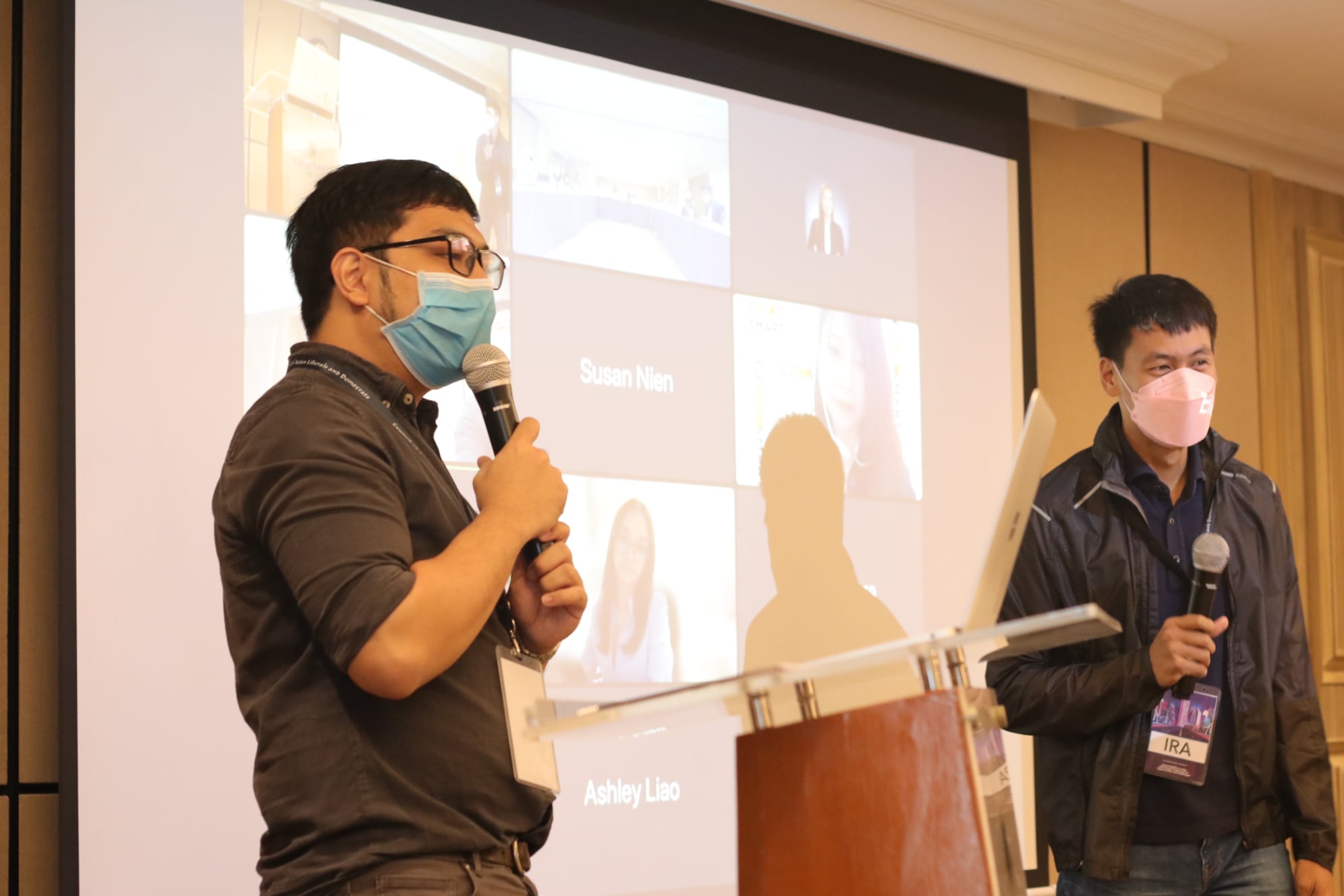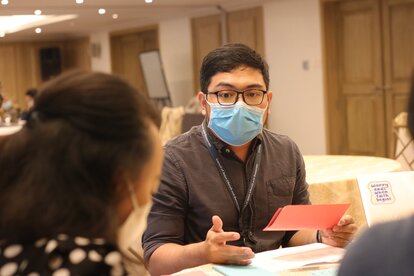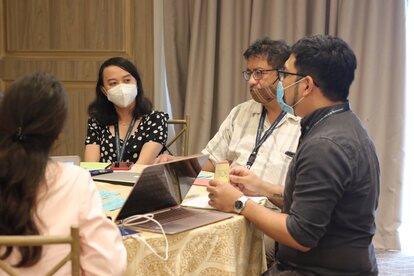Innovation for the Future
Smart Mobility is the "Mobility of all, by all, and for all”

Ira Cruz and Miguel Karlo Abadines from AltMobility in the Philippines helped to faciliate the CALD Smart Mobility Workshop 2022
On the 21st of April 2022, CALD with the support of FNF Southeast and East Asia held a hybrid workshop, which closely examined the definition of smart mobility and emerging examples of smart mobility across Asia Pacific. The workshop will contribute to the drafting of a baseline study and, additionally, a Smart Mobility Guide aimed to assist local governments in their plans. The event had an exciting array of international panellist from the Philippines, Taiwan, Thailand and Indonesia with a range of expertise. The panellist included transport experts, governmental officials, researchers, lecturers, and data scientists.
“There are four layers to smart mobility” explained Anita Chen, Deputy Secretary General for GO SMART in Taiwan, “this consists of infrastructure, data/digitalisation, service, and finally, policy. Each level continues to add value to what constitutes Smart Mobility. However, you will notice that a key component in each of these layers is financing.” Anita highlights that citizens and their governments must see this importance and invest in smart mobility in order to achieve a Smart City. Taiwan is one of the key countries leading in smart mobility initiatives. Real-time traffic data analysis and prediction systems has reduced the journey time by 9.4% and increase traffic speed by 8.4% in Taichung City, Taiwan. “This is an example of how data can benefit infrastructure.” Anita points to another fascinating example: the MeN▶Go Program App in Kaohsiung City, Taiwan. A card payment system, which integrates different modes of transportation and their connection data. This allows for a seamless travel pass for the MRT, bus, light rail services, and UrDa electric-scooters. In addition, the more you use the application, users can earn more points which can be used as a substitute payment method for additional services in convenient stores, and even for taxis. Anita explains that “The Taiwan Government has invested in billions of dollars into providing more options and improving the experience of transportation. This has increased the motivation for citizens to use public transportation, resulting in behaviour shifts which ultimately decrease air pollution and traffic congestions.”
Another notable example of the implementation of smart mobility across Southeast Asia include JakLingko in Indonesia and the Think Tank project of Khon Kaen, Thailand. The JakLingko is a joint venture between TransJakarta, KRL Commuterline, MRT, LRT, Rail link and local angkot (shared taxis) to produce a unification between transport systems and their payment. This initiative supports the government’s ‘Blue Sky’ program, Jakarta’s commitment to become a Climate Resilient City, with a target of making Jakarta a carbon-free city by 2050. On the other hand, the Khon Kaen Think Tank Project Smart is underway in developing a light rail transit prototype for the city. This is a collaboration between local government, private sector, and NGOs who formulated the Khon Kaen Think Tank. Investment was collected through crowdfunding, with the aim of building their smart city from the bottom up.

The workshop contained small group discussions on what are the challenges or enabling factors that help to either hinder or promote the development of smart mobility.
If smart mobility is the innovation we all need, why is it not being implemented widely? As part of the workshop, the participants also discussed various challenges and setbacks. The top of which includes financing and budget constraints. There is also a lack of foresight and/or government awareness around global smart mobility projects. Moreover, smart mobility initiatives have poor policy implementation, lack of infrastructure, and limited accessibility in rural areas.
It is vital to remember that a crucial element of transformation is a change in the people’s mind-set and building of a coalition and collaboration with multiple stakeholders including media, progressive public servants, legislators, and private sector. Elements of accessibility, productivity, and inclusivity should always be at the heart of smart mobility. Dr. Segundo Joaquin Romero, a lecturer of development studies program at the Ateneo de Manila University, sums it up when he said: “Mobility of all, by all, and for all.”
*Sky Chatuchinda is the regional communication officer for the office of the Friedrich Naumann Foundation for Freedom in Bangkok, Thailand.
If you would like to know more about CALD and their work please visit: CALD | Council of Asian Liberals and Democrats

The CALD Smart Mobility workshop took place on the 20th - 22nd April 2022 in Tagaytay City, Philippines
